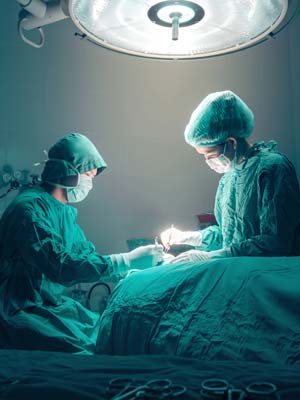Every day thousands of surgeries occur across the country in hospitals and outpatient clinics.
 These surgeries range from routine procedures such as tonsillectomies, to more serious and potentially life-threatening open heart surgeries and brain surgeries. Whenever you or someone you love is undergoing a surgical procedure, you place a great deal of trust in the surgeon and surgical team to perform that surgery safely and carefully. However, between 1990 and 2010 more than 80,000 surgical errors, known as “never events,” occurred. This equates to 4,000 of these mishaps per year throughout the United States.
These surgeries range from routine procedures such as tonsillectomies, to more serious and potentially life-threatening open heart surgeries and brain surgeries. Whenever you or someone you love is undergoing a surgical procedure, you place a great deal of trust in the surgeon and surgical team to perform that surgery safely and carefully. However, between 1990 and 2010 more than 80,000 surgical errors, known as “never events,” occurred. This equates to 4,000 of these mishaps per year throughout the United States.
Surgery Errors – What are “Never Events”?
According to John Hopkins University, these are events that should NEVER happen during a surgery because they are 100% preventable. Types of surgery errors – “never events” include:
- Surgery on the wrong body part.
- Removal of the wrong organ.
- Leaving a foreign object inside the body.
- A surgical procedure performed on the wrong person.
Foreign Object Left Inside the Patient’s Body
Each year, as many as 1,500 foreign objects are left inside of patients during surgery. These objects often include sponges, towels, clamps, and surgical tools. Shockingly, these objects that are “left behind” account for $62,631 per hospital stay in additional medical charges, as well as infections and complications. Retained foreign objects often require emergency surgery and can result in life-threatening conditions. Just how often do foreign objects get left inside a patient? When radiographs were performed after surgery, a surprising 1 in 5,500 patients were victims of these “never events.”
A Washington State Nurses’ Association study reported that leaving a foreign object inside of the body was up to 9 times more likely if the surgery was performed emergently. It was also more likely if the patient had a higher Body Mass Index.
Wrong Site Surgery : Wrong Patient, Wrong Body Part
Wrong site surgery occurs during 1 in every 100,000 surgeries. This includes surgery on the wrong body part, removal of the wrong organ or limb, and even procedures performed on the wrong patient.
Even with proper verification systems in place, these surgery errors – “never events” still occur at an alarming rate. Why do they occur? Miscommunication is the number one cause. Protocols can help reduce the risk of surgical errors from occurring. These protocols include double and triple checking patient ID bands before surgery, frequent equipment checks, clearly identifying and marking the surgical site, and having a time-out prior to performing the surgery. Other protocols include counting all sponges and towels, both before and after surgery, by the surgical team.
Unfortunately, overworked doctors and nurses may fail to perform the necessary safety checks or protocols, resulting in serious bodily injury or even death. In fact, studies have shown that up to 1/3 of all surgical errors resulted in permanent injury, bodily harm, or death.
Researchers at John Hopkins University also stress the importance of informing the public about the incidence of “never events” to help put pressure on hospitals and doctors to implement the necessary safety protocols that will reduce the number of these devastating medical errors.
Contact Our Experienced Medical Malpractice – Surgery Error Attorneys
If you or someone you love has been injured, and you believe your doctor or medical professional is to blame, the medical malpractice attorneys at McLaughlin & Lauricella, P.C., can help. Our team of lawyers consists of some of the best medical malpractice attorneys in Pennsylvania and New Jersey, and we will fight aggressively for you throughout the legal process.
The medical malpractice attorneys at McLaughlin & Lauricella, P.C., have decades of experience representing patients and their families across Philadelphia, Berks, Bucks, Dauphin, Delaware, Lackawanna, Lehigh, Luzerne, Montgomery, and Northampton counties. We are also proud to serve injured clients throughout the State of New Jersey. Contact us today at (855-MED-MAL1), or fill out our confidential contact form to learn more about your legal options.



